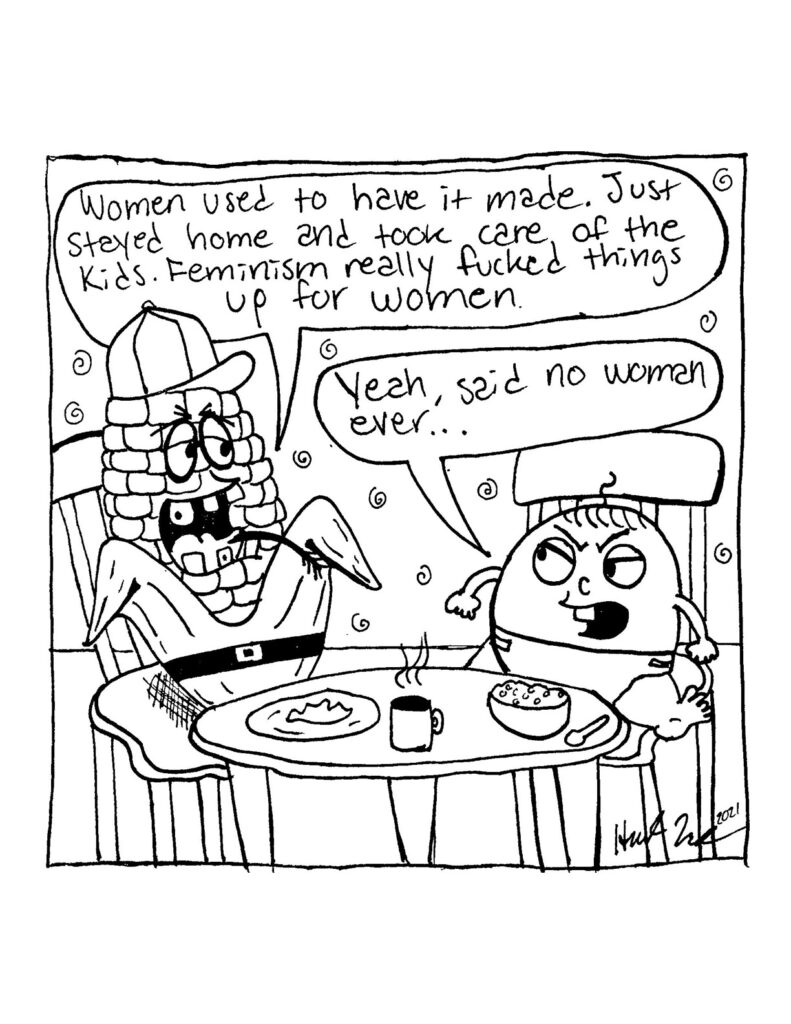Caitlyn Howel posted a snapshot with the quote, “Feminism is Genderless”. This statement resonates with me and relates to much of what Bell Hooks was writing about in her book, “Feminism is for Everybody”. Hooks writes, “Simply put, feminism is a movement to end sexism, sexist exploitation, and oppression” (Hooks, 1). There is nothing gendered about that definition of feminism. The word “feminism” evokes discomfort across the gender spectrum.
Some men are so afraid of being associated with anything feminine that they would never want to self-identify as feminists. Others are ignorant to the fact that men can be feminists too. Some women associate feminism with hatred of men. Hooks writes of her encounters with women who are anti-feminist when she writes, “When I talk about the feminism I know – up close and personal- they willingly listen, although when our conversations end, they are quick to tell me I am different, not like the “real” feminists who hate men, who are angry.” (Hooks, viii).
Oftentimes the need for people to disassociate themselves with feminism stems from ignorance. Feminism is not anti-masculinism. The major goals of feminism are for women to be afforded the same respect and opportunities as their male counterparts. There is a backlash against feminism due to some men feeling attacked. People are so immersed in living in a patriarchal world that they’re unable to recognize its existence. It’s all they’ve ever known.
In response to Jasmin H’s post about being a “tomboy” and not being “confined to society’s norms as to what a girl should be doing and wearing,” I can relate. Growing up I also identified as a tomboy and people would always call me one. I took pride in the label because to me it symbolized my identity. I grew up hanging out with boys, gravitating towards “boys” toys, and being repelled by pink princess dolls. As I grew older, I learned that there were things I liked that were more traditionally feminine and grew comfortable embracing whatever it was that I was into regardless of which gender it was associated with.
The article “Sex and Gender 101” by Kyl Myers deals with the difference between sex and gender. Myers does a great job explaining sex and gender as a spectrum rather than a binary by writing, “No two people have identical genitalia or hormonal levels.” I’m thankful that as a society people are starting to move away from placing expectations of gender upon children and even babies. Allena McKenzie brought attention to people “raising their children without gender until they are old enough to tell them themselves.” I also wonder if this will become more common, or if referring to a child with “They” pronouns is effectively choosing a non-binary gender expression for them rather than choosing “She” or “He” pronouns. I also wonder how much more commonplace “They” pronouns will become, since most people don’t identify 100% on either side of the gender spectrum. Will most people use “They” pronouns in the future? It feels like the conversation is still being shaped, but we are making progress in the right direction.
